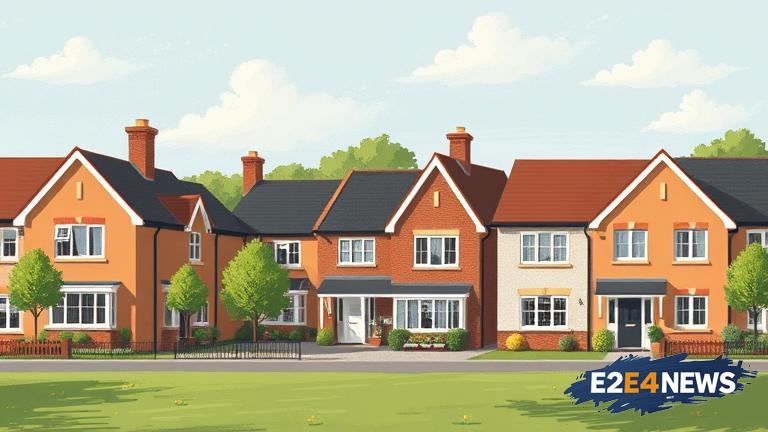The UK’s market towns have long been a desirable place to live, offering a unique blend of rural charm and urban amenities. However, for first-time homebuyers, these towns have become increasingly unaffordable. According to recent data, the average price of a home in market towns has risen significantly, making it difficult for young buyers to get on the property ladder. In some areas, prices have increased by as much as 50% in just a few years, putting homes out of reach for many. The problem is exacerbated by a lack of affordable housing options, with many developers focusing on building high-end properties rather than starter homes. As a result, first-time buyers are being forced to look elsewhere, often in less desirable areas or further away from their ideal location. This can have a range of negative consequences, including longer commute times and reduced access to amenities. The issue is not limited to any one region, with market towns across the UK experiencing similar problems. In the south, towns like Guildford and Henley-on-Thames have seen significant price increases, while in the north, places like Harrogate and Ilkley are also becoming increasingly unaffordable. The situation is particularly challenging for young people, who may be struggling to save for a deposit or secure a mortgage. Many are being forced to rely on help from parents or other family members, or to consider alternative options like shared ownership or renting. The government has introduced various initiatives aimed at helping first-time buyers, including the Help to Buy scheme and stamp duty relief. However, these measures have had limited success, and many argue that more needs to be done to address the underlying issues driving unaffordability. One potential solution is to increase the supply of affordable housing, either through new builds or by converting existing properties into starter homes. This could involve working with developers to offer more affordable options, or providing incentives for them to build homes that are priced within reach of first-time buyers. Another approach might be to introduce policies aimed at reducing demand, such as limiting the ability of buy-to-let investors to purchase properties in market towns. Ultimately, the key to making market towns more affordable for first-time buyers will be to address the complex interplay of factors driving up prices, from limited supply to high demand. By taking a comprehensive and multi-faceted approach, it may be possible to create more opportunities for young people to get on the property ladder and achieve their dream of owning a home. The UK’s market towns are a unique and valuable asset, offering a high quality of life and a range of amenities. However, if they are to remain accessible to all, rather than just the wealthy, urgent action is needed to address the affordability crisis. First-time buyers are not the only ones affected, as the lack of affordable housing can have far-reaching consequences for the entire community. It can lead to a lack of diversity, as only those who are already wealthy are able to afford to live in the area. It can also have negative impacts on local businesses, as a lack of affordable housing can make it difficult for them to attract and retain staff. Furthermore, the affordability crisis can have significant social and economic implications, from reducing social mobility to limiting economic growth. As the UK continues to grapple with the challenges of the housing market, it is clear that a new approach is needed, one that prioritizes affordability and accessibility for all. By working together to address the root causes of the problem, it may be possible to create a more sustainable and equitable housing market, one that allows first-time buyers to achieve their dream of owning a home in the UK’s desirable market towns.
